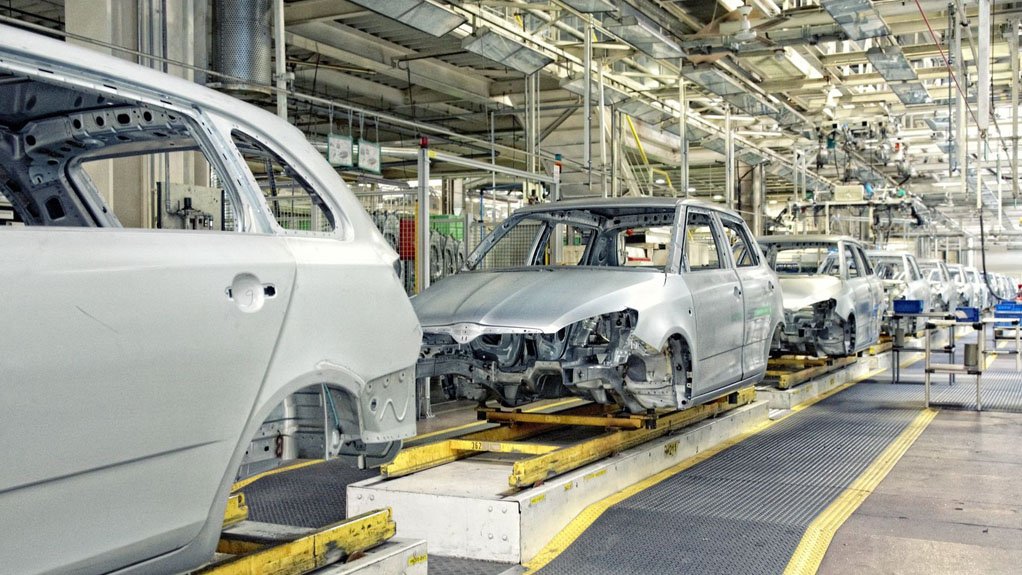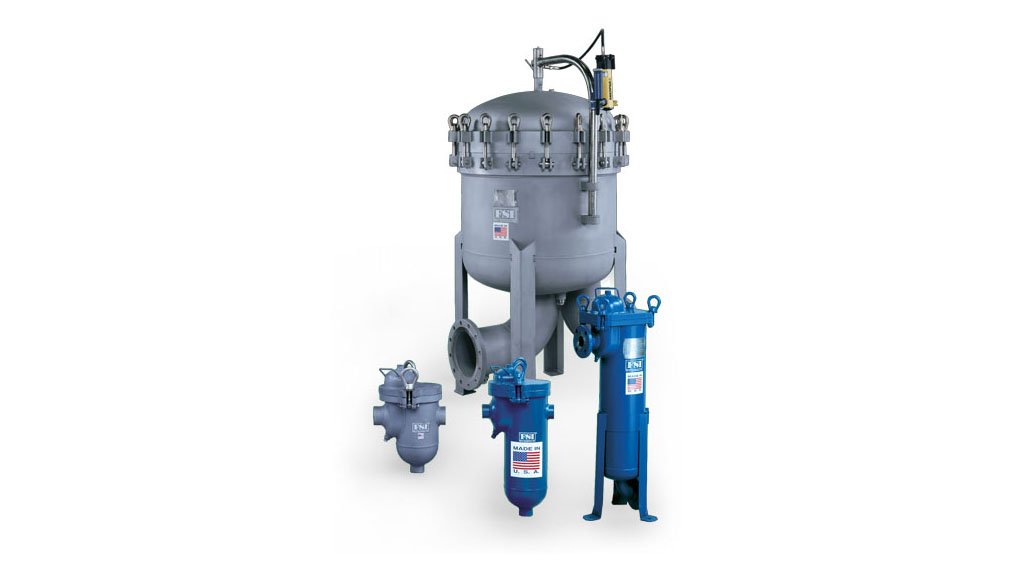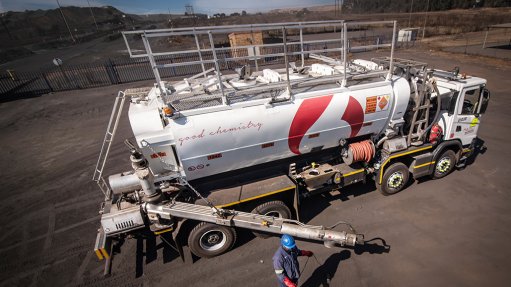Industry trying to reduce reliance on imports



LOCAL PRODUCTION Recent investments in South Africa’s automotive manufacturing sector demonstrate the faith of international investors in local producers
WELL-EQUIPPED Germ Africa provides high-quality filtration and dosing pump solutions that improve the automotive manufacturing process
High quality, increased productivity and cost reduction are vital for success as the South African automotive industry works to reduce its reliance on automotive component imports while growing its export potential in a slow economy, says industrial equipment supplier Germ Africa director Robert Haslam.
“With Africa forming an important growth market for many international automotive companies, it is crucial that South Africa continues to create an inviting environment for automotive component manufacturers that supply the original-equipment manufacturers operating in the country, to negate the country’s reliance on imports.”
While import trends on light vehicles have continued to decrease year-on-year, with figures at about 370 000 units in 2013, decreasing to about 290 000 in 2016, South Africa continues to import about R88-billion worth of components for local automotive plants.
Government’s Automotive Production and Development Programme (APDP) aims to reduce this figure and Haslam notes that the current negative trade balance in the overall local automotive sector is estimated to decrease at about R10-billion a year, with the deficit currently being around R30-billion. At such a rate, 2019/20 will be the year where the country achieves a trade surplus in the automotive industry.
To reach this state, however, Haslam stresses that private-sector inclusion throughout the supply chain will be critical. “As an industry, we are too reliant on imported components, creating an overall trade deficit, and industrialisation, tax and manufacturing incentives are the main vehicles through which the country is seeking to address this. Currently, about 70% of investment in industry comes from the private sector . . .”
Haslam notes that, according to the National Association of Automobile Manufacturers of South Africa, capital expenditure (capex) for the automotive industry will reach a record R8.17-billion this year. Under the leadership of various industry bodies, local automotive products are, moreover, continuing to gain strength in terms of quality and safety, in line with international standards.
There have been significant investments in South Africa’s automotive manufacturing sector over the past two years, he says. A new Beijing Automobile International Corporation plant is set to boost automotive production in Port Elizabeth, while Toyota has invested R6.1-billion in a new Hilux plant, in Durban, and a new BMW bodyshop has been constructed in Rosslyn, Pretoria. Volkswagen has also invested more than R4.5-billion in new models at its plant in Uitenhage, in the Eastern Cape, while Volvo has also invested in developing its operations in South Africa.
“All these movements demonstrate the faith of international investors in South African automotive producers, whose capabilities have been further enhanced through key government initiatives, including the APDP and the Automotive Investment Scheme, which forms part of the Industrial Policy Action Plan (Ipap).”
Proof is in the Products
Haslam notes that Germ Africa is noting good demand for its line of specialised products, which cater to the production of vehicles and quality-control procedures.
“At most existing automotive manufacturing plants, the aim is to increase output, whether through increased capital expenditure on plants or through process improvement during manufacturing.” Haslam says Germ Africa assists with this by providing high-quality filtration and dosing pump solutions to improve the manufacturing process.
The company’s product range includes filter bags, cartridges, dosing pumps and magnetic removal media, which have proven successful in local and international manufacturing environments.
“Our aim has been to meet the market need for reducing the amount of rework required as a result of defects occurring from particulate matter or other unwanted media on the production line. With results showing a reduction in rework of over 90% at some facilities, Germ Africa and partners have continued to show that the quality and consistency of products is what matters.”
Multiple Pathways
Haslam notes that growing the local value chain by coordinating development, from raw-material processing to local manufacturing and technology growth, is crucial, and the ability to remotely configure, dose and adjust technologies through more adaptable means has, meanwhile, allowed for greater control and reliability in manufacturing, with the benefit of higher throughput.
“We have bright minds in our local automotive plants who have a clear vision for the future. With guidance into areas like fuel cell electric vehicles, South Africa can, once again, become a world leader and this would, in turn, benefit areas like the platinum sector.”
Haslam highlights that, with the local automotive industry contributing more than 7% to the gross domestic product, it also forms a critical area for potential job creation, with about 35 000 people directly and about three times this number indirectly employed by the automotive manufacturing sector. “We require material growth in South Africa to create employment and even a 5% increase in local automotive manufacturing levels would make a noticeable improvement in the workforce.”
Article Enquiry
Email Article
Save Article
Feedback
To advertise email advertising@creamermedia.co.za or click here
Press Office
Announcements
What's On
Subscribe to improve your user experience...
Option 1 (equivalent of R125 a month):
Receive a weekly copy of Creamer Media's Engineering News & Mining Weekly magazine
(print copy for those in South Africa and e-magazine for those outside of South Africa)
Receive daily email newsletters
Access to full search results
Access archive of magazine back copies
Access to Projects in Progress
Access to ONE Research Report of your choice in PDF format
Option 2 (equivalent of R375 a month):
All benefits from Option 1
PLUS
Access to Creamer Media's Research Channel Africa for ALL Research Reports, in PDF format, on various industrial and mining sectors
including Electricity; Water; Energy Transition; Hydrogen; Roads, Rail and Ports; Coal; Gold; Platinum; Battery Metals; etc.
Already a subscriber?
Forgotten your password?
Receive weekly copy of Creamer Media's Engineering News & Mining Weekly magazine (print copy for those in South Africa and e-magazine for those outside of South Africa)
➕
Recieve daily email newsletters
➕
Access to full search results
➕
Access archive of magazine back copies
➕
Access to Projects in Progress
➕
Access to ONE Research Report of your choice in PDF format
RESEARCH CHANNEL AFRICA
R4500 (equivalent of R375 a month)
SUBSCRIBEAll benefits from Option 1
➕
Access to Creamer Media's Research Channel Africa for ALL Research Reports on various industrial and mining sectors, in PDF format, including on:
Electricity
➕
Water
➕
Energy Transition
➕
Hydrogen
➕
Roads, Rail and Ports
➕
Coal
➕
Gold
➕
Platinum
➕
Battery Metals
➕
etc.
Receive all benefits from Option 1 or Option 2 delivered to numerous people at your company
➕
Multiple User names and Passwords for simultaneous log-ins
➕
Intranet integration access to all in your organisation




















